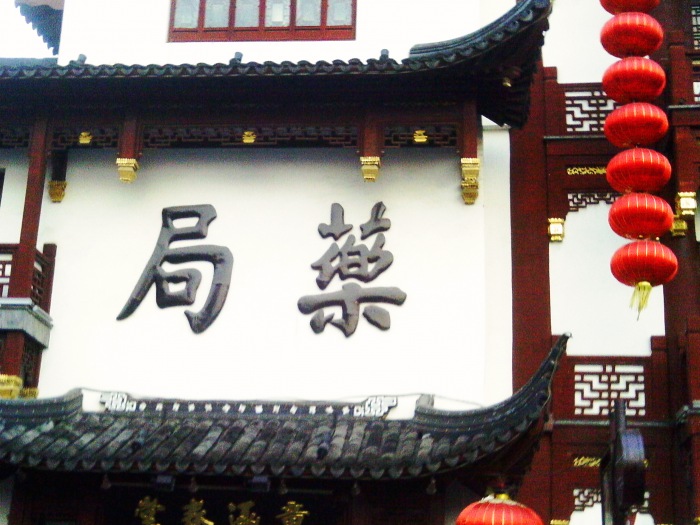Budget
China is a very affordable destination, especially by Western standards. Prices are reasonable even in Beijing and Shanghai – the two most expensive cities in China.

• Prices for private rooms start at 15 USD (12.5 EUR) in Beijing, Shanghai, and Xiamen.
• Food prices are generally very cheap. Prices for a budget dinner start at around 3 USD (2.5 EUR). Fancier restaurants will, obviously, charge you a lot more.
• Transportation costs are pretty low. Public transportation fares in Beijing start at 0.30 USD (0.25 EUR), in Shanghai and Xiamen at around 0.15 USD (0.13 EUR). The most popular way to get from Beijing to Shanghai is by train. The cheapest fares start at around 50 USD (42 EUR). Domestic flights are generally pretty affordable as well.
To save some more money, check out our Budget cutting tips.
Where to stay
You can find great accommodation options on Booking. Make sure to search for private rooms popular for romance. 😉 On Airbnb you can rent furnished apartments – those are usually cheaper than most hotels and they offer you the real Chinese experience. Airbnb, however, is not very popular in China.

Best time to go
The climate in China is very diverse, ranging from subarctic in the north and tropical in the south. Generally speaking, spring and fall are considered the best times to visit China, mainly because of the pleasant temperatures. Temperatures tend to get uncomfortably high during the summer (June – August) and very low during the winter (November – March). Winter is considered the low season in China – the prices get cheaper and the attractions less crowded.
Other information
♦ Planning and preparation: check out our planning routine here.
♦ Packing: check out the honeymoon adventurers’ ultimate packing list here.
♦ For other travel tips check out Travel like a pro, Travel for couples, Honeymoon styles, Honeymoon activities, Responsible tourism, and Travel resources.
♦ Language: The official language in China is Standard Chinese. Check out the typical travel vocabulary (in English) here. Learn useful travel phrases in Chinese here.

♦ Currency: Renminbi (yuan; ¥) (CNY)
♦ Visa or other entry requirements: All visitors to China are required to have a valid travel document and must obtain a visa in advance unless they come from one of the visa exempt countries. For more information check out Visa policy of China or their official website. Note: Hong Kong and Macau have their own visa requirements.
♦ Electricity standards: The power plug types in China are A, I and C, the standard voltage is 220 V and the standard frequency is 50 Hz. Plug standard: GB 1002.
♦ Time zone: UTC+08:00
♦ Immunization recommendations and requirements: There are no vaccination requirements for visitors to China. However, it is recommended to get travel vaccines and medicines for tetanus, hepatitis B, typhoid, hepatitis A, rabies, Japanese encephalitis, polio, and malaria. To prevent malaria avoid mosquito bites. There is no risk of yellow fever in China. The government of China requires proof of yellow fever vaccination only if you are arriving from a country with risk of yellow fever. This does not include the US. For more information check out Health Information for Travelers to China.
* Information for travelers from Slovenia is available here.

♦ Health and safety tips:
You should always make sure to follow the usual travel safety precautions:
- Leave your jewelry and other valuable belongings in the hotel safe.
- Keep your emergency cash apart from the rest of your money.
- Dress comfortably and carry only the items you will need for the day.
- Don’t carry a lot of money.
- Always make sure to lock your room before leaving the hotel.
- Be aware of your surroundings at all times.
- Stay in well-lit areas.
- Try to maintain a low profile and do your best to fit in.
- Carry a travel wallet/money belt/money pouch for carrying money and documents safely.
- Avoid contact with potential scam artists.
- Avoid showing off valuable belongings (like cameras) in public.
- Don’t count your money in public.
- Keep an eye on your belongings at all times.
For other common safety concerns in China, check out Lonely Planet’s safety tips. For common health concerns check out Lonely Planet’s health tips.
To stay healthy while traveling, check out our health travel tips.
• Tap water in China is not safe to drink. Drink bottled or filtered water instead.
* Always make sure to reuse a water bottle to cut down on waste.

♦ Local Customs: Chinese people may be chatty, loud, and bad-mannered by Western standards (they spit a lot, skip lines and have little respect for personal space), but above all that they are pragmatic, hard-working, traditional, respectful, and just incredibly friendly. As a foreigner, be prepared to become a target of curiosity. When entering a room, it’s customary to say hello to everyone (nín hǎo). The oldest person should always be greeted first. When meeting someone personally a friendly handshake is customary. There is no particular dress code required on the streets of China. Avoid wearing a bikini elsewhere than on the beach. In rural regions, revealing clothes and sloppy attire may be frowned upon. Punctuality is highly appreciated in China. Try to avoid topics like local politics and turbulent historical events. Public displays of affection may be frowned upon.
Read more about our Chinese experience here.
Leave a Reply